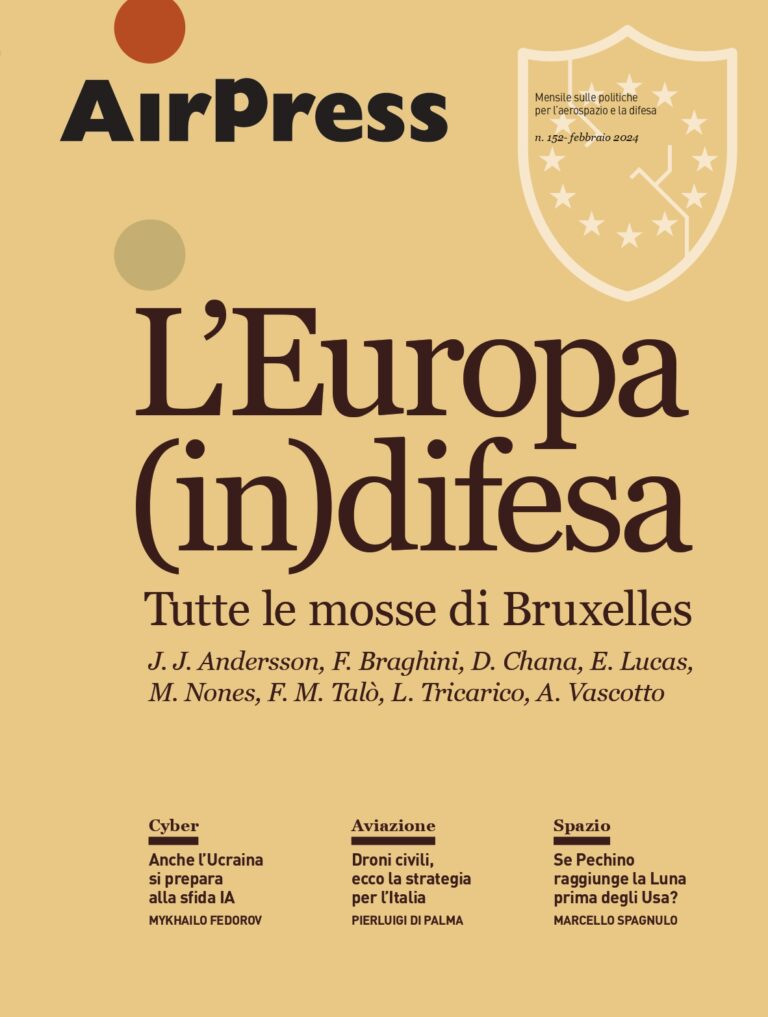The Italian 5G security measures are on the right track, now to exclude Huawei and ZTE from the Italian network. A high-ranking official from the US State Department spells out the US guideline to Formiche.net: from Trump to Biden, 5G security remains at the top of the agenda. Plus, O-RAN, Clean Networks, and TIM’s virtuous example
Even in the endless government crises that plague the country since the foundation of the Republic, it is a longstanding Italian tradition to place internal and foreign politics on the same platter. Especially when it comes to Italy’s most solid ally, the United States.
The two latest crises are no exception. For instance, Matteo Renzi opened the most recent one with the (thinly) veiled belief that he would impress the next resident of the White House, Joe Biden.
In 2019, the right-wing leader Matteo Salvini explained his break with the former government by saying that he had to bring Italy back on the Atlanticist track and shield it from the Chinese flirts of his former allies, the Five Star Movement.
A month after that, an endorsement tweeted by Donald Trump to his friend “Giuseppi” (PM Giuseppe Conte, who initiated his second term thanks to a coalition between the 5SM and the left-leaning Democratic Party) was a cold shower for the Italian right, one yet to be fully digested.
Today, like then, the relationship between the Chinese and the Italian governments (especially when it comes to technology) remains one of the unsolved Transatlantic dossiers. Tellingly, the first official act of Mr Conte’s second government was to address the presence of Chinese companies (accused of espionage by the US) in Italy’s 5G network.
That “cyber decree” laid the foundations for Italy’s “national cybersecurity perimeter,” which is essentially an oversight network that vets the security of tech equipment and is managed by the nation’s intelligence department.
Fifteen months after that clear signal, too many uncertainties remain. The cyber perimeter – which is being built – and the 5G “golden power” – the government’s lawful intervention in the dealings of private companies over security issues – cashed in the endorsement of the American ally. However, those Chinese companies that stand accused of espionage by the US – Huawei and ZTE above all – are still vying for control over Italy’s fifth-gen network.
There are several question marks relating to the transitions of power, both in Washington and in Rome. Still, one thing is certain: as far as the China policy goes, the form might change between Mr Trump and Mr Biden, but the substance will not.
Formiche.net had the chance to explore the American Department of State’s position on the Italian plan. The picture that emerged shows their faith in the devotion of the Italian government, as well as some worry for certain grey areas, which will be investigated by the incoming administration.
“There is broad bipartisan consensus within the United States on the need to ensure that our digital networks are secure from untrusted vendors,” told us a high-ranking official from the Department of State, which will be directed by Anthony Blinken starting January 20th.
“It is not a choice between the United States and China. It is a choice between a digital economy built on democratic values like openness, transparency, respect for human rights and the rule of law versus a digital economy that is under authoritarian control.”
Specifically, as explained by the Department official, companies like Huawei and ZTE cannot be considered reliable because they “are beholden to the whims of the Chinese Communist Party (CCP), as spelled out in the [People’s Republic of China]’s National Intelligence Law: ‘Any organization and citizen shall, in accordance with the law, support, provide assistance, and cooperate in national intelligence work, and guard the secrecy of any national intelligence work that they are aware of.’”
This is why the US frowns upon the established presence of Chinese vendors in the Italian market and within Italian institutions, as shown by two recent conferences, organized by Huawei and ZTE, to which government officials participated en masse.
“Promises made by Huawei and ZTE that they will not cooperate with the CCP are promises they cannot keep,” maintained our source. “Huawei has links to the PRC military, is implicated in PRC espionage, has stolen intellectual property from foreign competitors, and is accused of corrupt practices throughout the world.”
According to the Americans, any middle ground solution is unthinkable. “Untrusted vendors don’t need a back door — they have unlimited front doors through software updates and patches to insert malicious code or skim data.”
Therefore, it is useless to distinguish between “core” and “not core” network. “In 5G networks, the components in the edge and the core – the software as well as the hardware – are equally important. There is no longer a real distinction between the edge and the core because sensitive information is stored and analyzed in all parts of the network.”
Italy has made significant steps forward, as they say in Foggy Bottom. “We welcome the progress being made in Italy and appreciate our close collaboration with the government on these issues. The implementation of the cybersecurity perimeter and the utilization of the golden power rule are powerful tools to protect the interests of Italian consumers now and in the future.”
Another nod goes to those in the market who took the initiative of their own free will. Such as TIM, the network operator headed by Luigi Gubitosi, who in June decided not to allow Huawei in the company’s tenders for Italy and Brazil. “We are glad to see leading companies like TIM take the necessary action to provide their customers with secure networks that are built using only trusted vendors,” said the Department of State official.
It’s not only a matter of security, but rather – as reasoned by our source – a “distortion of the marketplace” deriving from the State subsidies received by Chinese companies. “Huawei receives uncontested access to the Chinese domestic market, the single largest telecom market on earth, while benefiting from intellectual property stolen from Western competitors and forced technology transfers. Huawei also receives massive state-backed financing for its contracts, which allows it to sell at a loss to undercut its competitors.”
If Chinese companies are off limits, where should Italians look instead? European companies, such as Ericsson (Swedish) and Nokia (Finnish). “[They] offer the same (if not better) quality equipment than Huawei and ZTE but are not beholden to authoritarian regimes that can require them to steal your data or shut down critical systems with the push of a button.”
Other than those (and a step behind) there are some rising American companies in the star-spangled market. Some of those belonging to a gigantic trade association are proposing an open telecom market, one which is modular and not proprietary, to defuse security risks. Dubbed O-RAN (Open Radio Accessed Network), this solution is welcomed by intelligence and governmental apparatuses in the US.
According to our source, O-RAN “offer[s] the promise of a future with a variety of software and hardware vendors and the ability for operators to disaggregate their networks between multiple vendors using open interfaces.” In other words, risk diversification. The US State Department, explained the official, wants to work with allies, Italy included, to promote O-RAN.
A second solution entails the “5G Clean Networks” initiative, launched by the American government; a security cordon which Italy did not join as of yet. The initiative “addresses the long-term threat to data privacy, security, human rights, and principled collaboration posed to the free world from authoritarian actors and is rooted in internationally accepted digital trust standards.”
Creating a Transatlantic digital alliance, according to the American official, is at the top of the agenda. Which is part of the reason why frictions between the US and the EU Commission, led by Ursula von der Leyen, over the latter’s new regulations for the digital market, known as the Digital Services Act (DSA) and the Digital Market Act (DMA).
“The United States is supportive of the EU vision for a ‘Digital Single Market’,” our source told us, but “at the same time, we have real concerns about potential counterproductive regulations and industrial policies that exclude or impede US digital companies.”
Washington’s message to Rome and Brussels is clear enough: time to close ranks.







